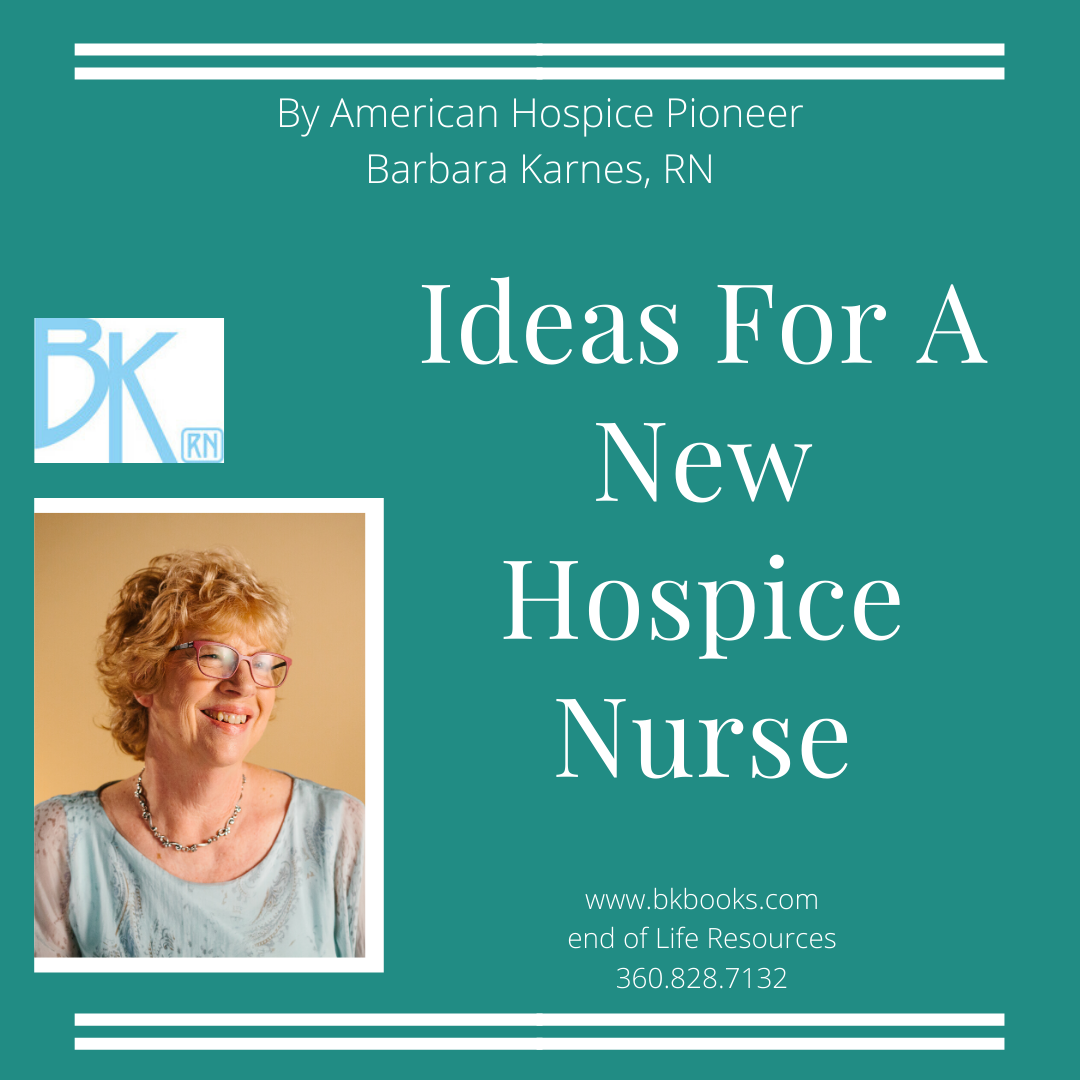QUESTION: Could you write about why it's so difficult for people to start end-of-life care conversations?
I was just on the phone with a woman who told me the doctor told her friend he was surprised she had lived this long with the disease having spread into other areas as much as it has. In the next breath she was telling me about CAT Scans to determine another round of radiation and possible clinical trials to be done.
As I talked about the ineffectiveness of further treatment, the diminished quality of living that comes with further treatment and calling hospice vs. continuing with the home health visits I could feel the tension building on the phone. This was not what this woman wanted to hear from me. She proceeded to tell me about a National Public Radio program that just told about a woman who was cured of her cancer of the lung by a new drug used in a clinical trial.
I realized as we talked my advice of getting hospice involved, considering stopping treatment and living life that is left in the best possible way, was not being well received. The patient may have been asking what it was like to die and what does my future hold but dying was not part of the caregiver’s agenda.
I started the end of life conversation but backed off reading the listener’s reaction. Actually, if I had been face to face and had more medical history I would have pursued the conversation even though the caregiver was uncomfortable --but that is me. Unfortunately, too many medical professionals say what the caregiver or patient wants to hear not what they need to hear.
As professionals we know how to deal with tears, fears, questions, uncertainties, lack of knowledge and wishful thinking. We have the knowledge of which diseases have the best chance of being fixed and what “fixed” really means as far as remission and reoccurrence. Yet with all of these skills we hesitate to tell the patient/family what we really think. We way too often keep offering medical interventions until the last breath (including codes and ventilators).
The front line of truth telling is the physician. Much has been written about the challenges facing the physician as end of life approaches. Lack of training in end of life, a sense of failure if not offering something, the idea that what is learned from one patient, no matter the result, can be applied to another with better results. I think all of these factors affect the physician’s ability to say “There is nothing more we can do medically. Lets talk about how we can keep you comfortable and living well for as long as we can.”
Healthcare workers who are not physicians are hindered in speaking of end of life issues with a patient or family by an attending physician's not initiating the conversation. Once the physician has opened the door the rest of us can step in.
No one wants to be the bearer of bad news. Americans are a death denying society. We view death as the enemy and a failure: something to be feared and avoided. Like ostriches we hide our head in the sand to keep from addressing the fact that we are all going to die someday (just don’t let someday be today or of someone I care about).
While there are dynamics to dying from disease or old age, dying is also unique to each person. The closest we can get to determining a prognosis is months, weeks, days or hours. There are too many factors involved in dying to be so specific as to say 6 months, 3 weeks, or 24 hours. This inability to be specific and the individual uniqueness makes the job of addressing end of life issues all the more difficult.
I think the fear of telling a patient and or family that nothing can be done, that we are talking about months/weeks/days of life keeps us healthcare professionals from saying just that. What if we say a person is entering the dying process and they aren't or don’t die when we think they will? What if we are wrong? Looking at the emotional pain we will have caused can keep us quiet.
A “safe” area of conversation can be found in Advanced Directives, speaking of end of life before faced with end of life. Most medical facilities are now required to ask if Advanced Directives are in place but it is more often than not hurried over.
It would be helpful for the patient, family and even the physicians if there was an Advanced Directives “talk” before treatments are begun to hear from the patient what their end of life wishes are before they are actually at the end of their life. Having that conversation, physician and patient, before treatment would make it easier for the physician to reopen the door when treatment options are futile.





